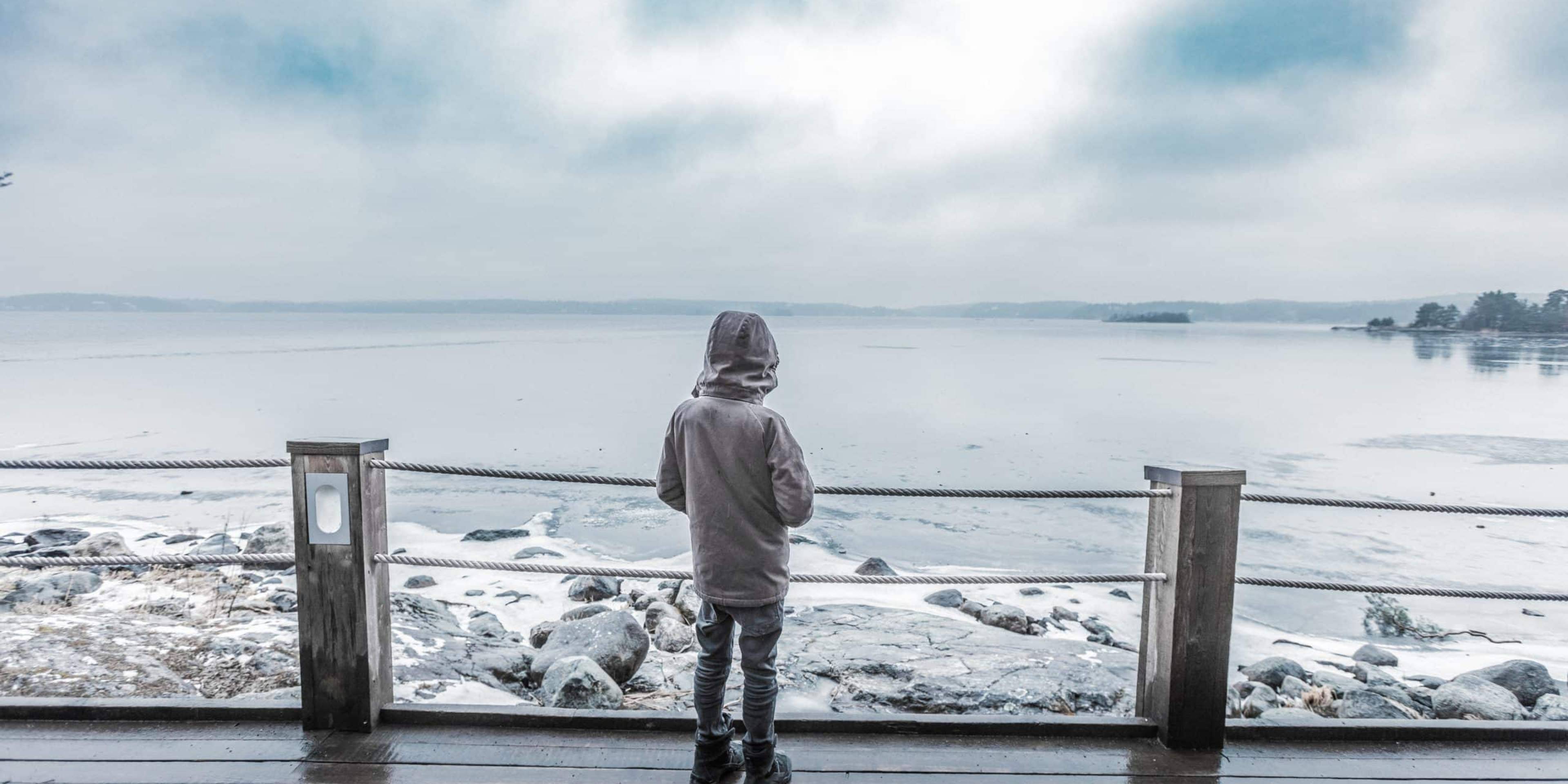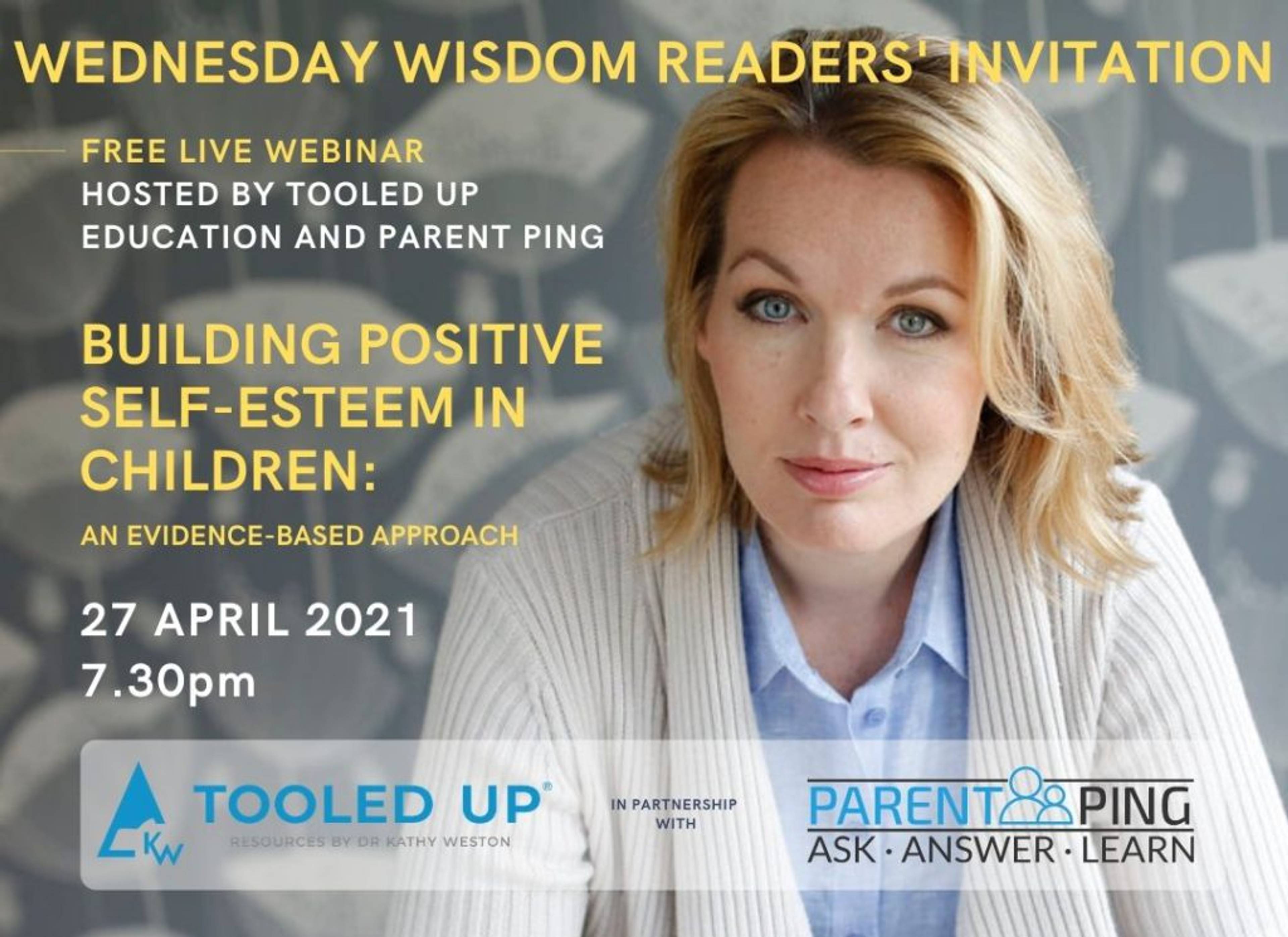April 21, 2021
Where Do We Go From Here?
By Dr Kathy Weston

Reflect
I have been reflecting on the fact I have given 42 school talks since the start of 2021. There is little doubt that the appetite for research-informed parenting approaches is growing urgently. It’s important for busy but loving parents to remain on high alert to the challenges that our complex world throws up and keep abreast of any icebergs on the horizon. This is particularly the case when it comes to mental health problems in children and young people.
The most recent Office for National Statistics survey, undertaken in July 2020, found that one in six (16.0%) children now have a probable mental disorder, increasing from one in nine (10.8%) children in 2017. Those on the frontline are deeply worried.
In the past week, one clinical psychologist told me of a 400% rise in referrals within her practice, a leading national expert on eating disorders shared statistics which indicate a post-pandemic ‘tsunami’ of need (without the support to match it), and one council leader told me of county-wide concern around pupils’ poor body image. Self-harm is an issue of great concern among mental health researchers too; among young women aged 16-24, self-harm rates have risen from 6.5% in 2000 to 19.7% in 2014 (Foulkes, 2021). 25% of 15 year olds have self-harmed at least once (HBSC, 2020) and self-harm seems to be becoming more prevalent in younger children.
Over the last month, a series of tragic events and statements have reminded us how young women are disproportionately affected by many issues. They experience more abuse, violence and often feel unsafe going about their daily lives. The violent murder of Sarah Everard as well as the outpouring of testimonies to the “Everyone’s Invited” Instagram account indicate pervasive objectification of women, a frightening sense of sexual entitlement on the part of some young men and historical, institutional nonchalance.
Motivate
So where do we go from here? What can we possibly do as parents, knowing what we know at this point in time? What steps can we take to improve our children’s life chances, keep them mentally well, physically safe and acutely aware of how to treat other people? I want to cut to the chase.
We must recognise that schools cannot possibly deal with the sea of mental health problems among students without parents playing their part at home. Taking care of children and young people’s mental health isn’t one person’s job in school, nor is the sole responsibility of a parent or carer. We all need to work together, in partnership.
We need to be alert to early signs of mental distress in the primary years. Half of all diagnosable psychiatric conditions emerge before the age of 14, and 75% before the age of 24. We must not be afraid to seek professional advice when things don’t seem right, and should take on board feedback from those who work with our children. The earlier any mental health difficulties can be diagnosed and treated, the better.
Anxiety remains the most common mental health disorder in the UK, so it’s worth a mention. From an early age in family life, children should learn to navigate little fears. Exposure to activities or adventurous play that are a little bit anxiety-inducing enables them to practise these feelings. Anxiety is not the enemy per se. One or two butterflies in tummies are ok, but too many, too often, can paralyse some children and, over time, inhibit them from doing the things that they really enjoy. The latter is problematic.
Within the primary years, we can help future-proof children by relishing challenge, exposing them to a diverse range of activities and talking more widely about anxiety within family life. Everyone gets butterflies. What strategies do you use to manage them and have you shared these with your children?
Support
In order of importance, here are a few tips to help you future-proof your children’s mental health, derived from a wide reading of the available research.
Start with your own mental health first. Invest in your own happiness, goals, interpersonal relationships and access to physical exercise – put your own mask on first, as they say. Secondly, try to focus on your children’s emotional literacy. Help them to recognise how thoughts affect feelings and how feelings influence actions. Help them to name different emotional states and expect them to experience a wide range of feelings, not only the ‘good’ ones. Have a family culture that values dialogue, encourages critical thinking and considers no topic off-limits.
Teach them to consider the things in their lives that make them feel good about themselves; the friendships and activities that amplify self-worth, belonging and happiness. Talk about your own experiences and coping strategies in age-appropriate ways, use language in the home that is positive and model resilient thinking habits. Pay great attention to how your child talks about themselves and try, as far as possible, to give them access to activities and people that are self-esteem boosting, rather than depleting.
Give them plenty of opportunities for physical exercise and play, and always ensure they have a strong sense of body gratitude and body boundaries. Focus on the quality of family sleep and ensure that your children have a strong sense of your family digital values. Pay attention to the sibling relationship. Help them work out their differences and find consensus.
Tell your children you believe in them and avoid doing everything for them. Don’t overreact when they make mistakes; see them as learning opportunities. Never mollycoddle. Instead, take time to listen, make sure they feel heard and then coach them to proactively problem-solve. Keep laughing, keep things in perspective and talk about the future in positive terms.
Are you a Tooled Up member?
The Tooled Up library now features over 200 evidence-informed resources, to help you cultivate your children’s resilience, mental health and wellbeing. We now have 60 podcasts with leading professors and researchers from around the world. All interviews are accompanied with detailed notes, in case you are short of time. Search on the website for any subject that interests you, and if you can’t find what you are looking for, make sure that you get in touch – the Tooled Up Team is here to help: office@tooledupeducation.com
In particular, make sure that you download our new 14 day Wellbeing Journal, a great starting point to encourage tweens and teens to reflect and focus on the good things in their lives and consider strategies for dealing with the bits that might be more tricky. We have a new activity which will ask siblings to celebrate each other’s good points and we would urge you to check out our new article on why it’s so important to normalise mistakes in family life, along with the accompanying booklist.
Don’t forget to book your place on my webinar about factors that affect children’s self-esteem, next Tuesday at 7.30pm. Spaces are limited so book your place today!
